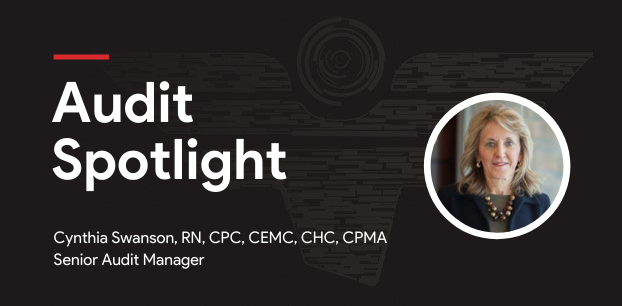
Audit of outpatient treatment of malignant melanoma results in plan savings
Background
ClaimDOC’ s comprehensive line-by-line auditing of claims uncovers errors that basic claim repricing and auto-adjudication does not catch, leading to greater savings to health plans and beneficiaries. Our audit team analyzes all types of healthcare claims for a variety of potential concerns including excessive usual and customary charges, duplication of claims, correct coding initiative edits, unbundling of services, and others. Our claims review is not intended to impact care decisions or medical practice. In this Claims Audit Spotlight, we focus on hospital outpatient services related to coding and billing. What are outpatient services? Outpatient services are medical procedures or tests that can be done in a medical center without an overnight stay. Many procedures and tests can be performed in a few hours. Outpatient services may include:
- Diagnoses, such as radiology, laboratory, or other diagnostic or therapeutic testing.
- Treatment, such as certain procedures/surgery and chemotherapy.
- Wellness and prevention, such as counseling and other evaluation and management services.
- Rehabilitation, such as physical, occupational, or speech therapy, cardiac rehab, pulmonary rehab, drug or alcohol rehab, and others.
Pricing and payments for hospital outpatient services are commonly based on an Outpatient Prospective Payment System (OPPS) that is based on the Ambulatory Payment Classification (APC) system. Hospitals bill outpatient department services on a UB-04 claim form or electronic equivalent using CPT/HCPCS codes for all services, supplies, and pharmaceuticals. Each line on the claim is evaluated for payment or non-payment (packaging, included in payment with another procedure/service on the claim) using various criteria.
Case Scenario
Member underwent treatment in a New Hampshire hospital outpatient department for the treatment of malignant melanoma. The hospital submitted their claim to insurance with total charges of $65,890.48.
Our analysis of the claim identified charges for pharmacy was $64,154.48. The pharmacy (medication) was reported/billed with HCPCS code J9271, defined as, Injection, pembrolizumab, 1 mg. (KEYTRUDA) with reported quantity units of 200.
Based on information published on the Keytruda.com website, the list price for each indicated dose of KEYTRUDA when given every three weeks is $9,869.94. The indicated adult dose of KEYTRUDA is either 200mg given every three weeks or 400 mg given every six weeks.
Other service lines on the claim included charges for a blood draw, laboratory health panel test, clinic outpatient evaluation, and management visit, and one hour of intravenous (IV) infusion resulting in total charges of $1,736.00 for these additional five (5) services.
Below is an overview of the hospital outpatient facility charges billed and related ClaimDOC pricing and savings:
- Total hospital billed charges: $65,890.48
- Medicare pricing based on APCs 05694 and 01490 with packaging – $10,486.60
- ClaimDOC Pricing: $20,150.96 – Based on cost-to-charge ratio (C-C/R) with markup
- Plan Savings: $45,739,52
- Percentage of Savings: 69%
The Takeaway
Egregious pharmacy charges were observed on the UB-04 claim form/electronic equivalent. While hospitals may elect and bill any amount they choose for services(s) performed, egregious fees, unbundling of “packaged” services, or incorrect billing can complicate matters for members to understand their bills and payments, impact the collection of patient balances, build a reputation of hospital unbundling services and/or charging high fees, create burdens for patients having no insurance and a host of others.
Our goal at ClaimDOC is to use benchmark charges and costs nationally to negotiate fair and ethical payments. Employers turn to us seeking to establish fair reimbursement rates for their plans allowing them to save money and provide richer benefits to their employees. A win-win for everyone.